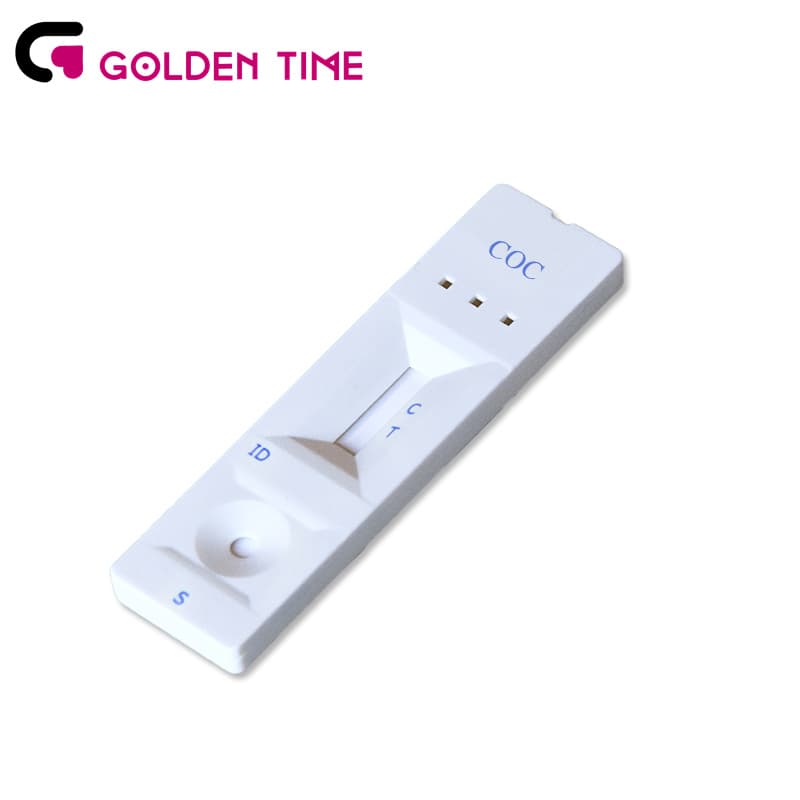Feb . 11, 2025 05:33 Back to list
lh ovulation test strip
Ovulation test strips have become an indispensable tool for women in Pakistan who are actively planning their families. These strips offer a convenient, accurate, and affordable way to track fertility, empowering women with the knowledge they need to make informed decisions about their reproductive health.
For women with irregular menstrual cycles, these strips can be an invaluable asset. Chronic conditions such as polycystic ovary syndrome (PCOS) can disrupt regular ovulation patterns, but using ovulation test strips can help women with such conditions better understand their bodies and plan accordingly. This proactive approach to tracking ovulation can alleviate anxiety and stress, bringing a degree of control back to couples facing fertility challenges. While the technology is easy to use, effective results depend on using the strips correctly. Women should test at the same time each day for accurate baseline results, and it’s recommended to reduce liquid intake two hours before testing to avoid diluting LH concentrations in the urine. Maintaining a diary of test results can also provide valuable insights into menstrual patterns over time. The testimonials of users in Pakistan highlight a positive experience with ovulation test strips. Many have reported increased confidence in family planning efforts, with successful pregnancies attributing to the accuracy of these tests. The satisfaction from users substantiates the trustworthiness and efficacy of these strips, adding to their credibility. Despite the obvious benefits, some women may still find the topic of fertility tracking daunting. Here is where education plays a crucial role. Workshops led by healthcare professionals, along with easily accessible online resources in local languages, can bridge this gap, providing the knowledge and confidence necessary to use these strips effectively. In summary, ovulation test strips offer a blend of convenience, portability, and precision, assisting Pakistani women in achieving their family planning goals. They stand as a testament to the growing accessibility and empowerment of women’s reproductive health through simple, yet effective technological solutions. As awareness increases, more women will likely incorporate ovulation test strips into their routine health practices, fundamentally enhancing their approach to fertility management.


For women with irregular menstrual cycles, these strips can be an invaluable asset. Chronic conditions such as polycystic ovary syndrome (PCOS) can disrupt regular ovulation patterns, but using ovulation test strips can help women with such conditions better understand their bodies and plan accordingly. This proactive approach to tracking ovulation can alleviate anxiety and stress, bringing a degree of control back to couples facing fertility challenges. While the technology is easy to use, effective results depend on using the strips correctly. Women should test at the same time each day for accurate baseline results, and it’s recommended to reduce liquid intake two hours before testing to avoid diluting LH concentrations in the urine. Maintaining a diary of test results can also provide valuable insights into menstrual patterns over time. The testimonials of users in Pakistan highlight a positive experience with ovulation test strips. Many have reported increased confidence in family planning efforts, with successful pregnancies attributing to the accuracy of these tests. The satisfaction from users substantiates the trustworthiness and efficacy of these strips, adding to their credibility. Despite the obvious benefits, some women may still find the topic of fertility tracking daunting. Here is where education plays a crucial role. Workshops led by healthcare professionals, along with easily accessible online resources in local languages, can bridge this gap, providing the knowledge and confidence necessary to use these strips effectively. In summary, ovulation test strips offer a blend of convenience, portability, and precision, assisting Pakistani women in achieving their family planning goals. They stand as a testament to the growing accessibility and empowerment of women’s reproductive health through simple, yet effective technological solutions. As awareness increases, more women will likely incorporate ovulation test strips into their routine health practices, fundamentally enhancing their approach to fertility management.
Next:
Latest news
-
Malaria Pf Ag Rapid Test Kit - Quick & Accurate Detection
NewsAug.11,2025
-
Accurate Cardiac Marker CK-MB Rapid Test for Quick Results
NewsAug.10,2025
-
Premium Empty ABS Plastic Cassette for Test Strips
NewsAug.09,2025
-
Sterile Urine Cup: Accurate Specimen Collection for Labs & Home
NewsAug.08,2025
-
Malaria Pf/Pan Ag Rapid Test Kit for Fast, Accurate Diagnosis
NewsAug.07,2025
-
Rapid Canine Corona Test: Fast & Accurate Results
NewsAug.06,2025

